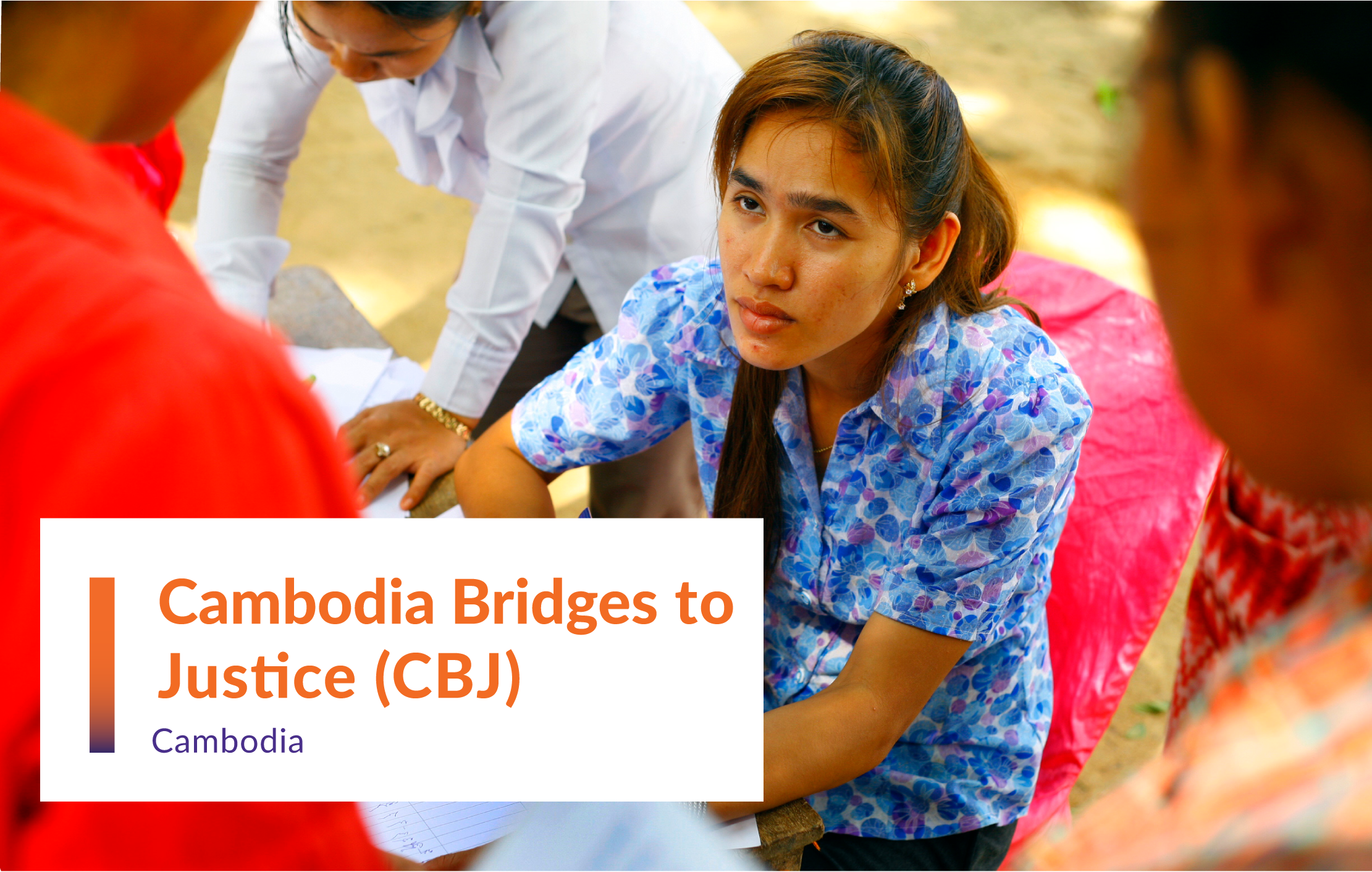Winner
Access to Justice
Criminal Justice Reform
Share this
Contact information
Cambodia International Bridges to Justice (ibj.org)
Facebook

Championing Access to Justice: Improving Cambodia's Courts of Appeals system
The Problem
Despite over 38,000 Cambodians currently being held in prison, there is no comprehensive state-sponsored legal aid system to represent them. Defendants are not granted a presumption of innocence, which incentivizes torture and coerced confessions in police detention. Unfairly convicted defendants appeal without representation and are then forced to languish in prison for years, often beyond the duration of their original sentences. Even more unjustly, acquitted defendants can be required to stay in detention for years while prosecutors’ appeals pend. As a result, 35% of detainees are awaiting appeals, which can take up to seven years to reach a judge. For especially vulnerable populations, such as women and juvenile detainees, the risks of exploitation and abuse are manifold. From torture upon arrest, to trial in absentia, to an appellate process outlasting the initial sentence, access to justice in Cambodia is suffering – and 38,000 people and their families are paying the cost.
The Approach
Since its founding in 2005, Cambodia Bridges to Justice (CBJ) has worked to transform the country’s criminal justice system by implementing programs aimed at ensuring systemic early access to justice. In addition to providing legal advice and representation to citizens of fifteen Cambodian provinces, CBJ has also conducted comprehensive training programs for justice system stakeholders, organized widespread rights awareness campaigns, and operated Defender Resource Centers across the country.
CBJ’s approach to access to justice is: by ensuring that detainees receive access to representation as soon as possible, the compounding horrors of police torture, unfair trial, prolonged detention, and appellate injustice can be systematically eradicated. A central element of this approach has been cultivating long-lasting partnerships with key institutions, including the Ministry of Justice, Ministry of Interior and the Bar Association. These collaborative relationships protect both the short- and long-term interests of vulnerable prisoners in Cambodia.
Since 2012, CBJ’s appellate reform project has undertaken to provide case management and legal aid to vulnerable detainees awaiting appeals. In 544 cases, CBJ’s legal aid lawyers have navigated Cambodia’s justice system while tracking the substantive and procedural challenges they face in order to facilitate policy change and evaluate the project’s impact over time.
The Impact
- Since 2005 CBJ has provided legal aid to 12,835 vulnerable accused, and has trained 749 lawyers and 1,718 justice officials. Rights awareness campaigns have reached over 10 million people.
- 11% of CBJ’s clients are acquitted or have their cases dismissed, and 85% of clients have received a more proportionate sentence as a result of having legal representation.
- CBJ began its Court of Appeal project in 2012. The program has assisted 544 people to access justice in pending appeals. In 2016 alone, CBJ represented 19 clients who had been detained pending the prosecutor’s appeal of their acquittals; all 19 had their acquittals upheld and were released with no further delay.
- CBJ’s work has decreased occurrences of torture, reduced caseloads and burdens on judicial resources, and alleviated prison overcrowding. CBJ has also worked with government officials to move legal aid offices into the courthouses and strengthen best practices for courtroom advocacy.
The Future
CBJ believes that access to justice for all Cambodians is achievable. Prioritizing early access to the accused and prompt appellate representation, along with continuing to facilitate government cooperation and rights awareness nationwide, CBJ feels its current approach to criminal justice reform can be extended to every corner of the country.